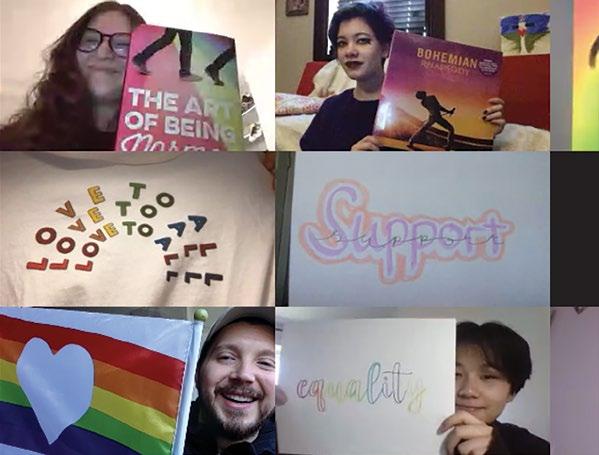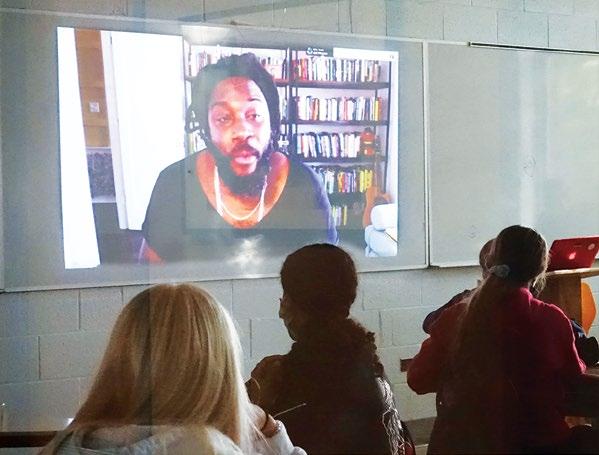
3 minute read
Diversity, Equity & Inclusion (DEI)
Exploring, Celebrating & Understanding Diversity, Equity & Inclusion (DEI)

SAGA meeting
Creating a learning environment that reflects the diverse world in which we live has become a priority for the school, particularly since the 1990s. With the introduction of clubs that enable identity exploration, the initiation of dialogue and exchanges, modifications to school curricula and a strategic objective to increase diversity and accessibility, the goal has been for diversity, equity and inclusion to become deeply rooted in the school culture.
During the 2020–2021 academic year, members of the LCC community, including students, faculty, staff, parents and Board members were invited to participate in conversations around DEI. Discussions were facilitated by Deputy Head Mark Salkeld and Director of Student Life Michele Owen. Participants reflected on how DEI is defined, the extent to which LCC is an inclusive environment, and further steps to be taken. Alumni will be invited to participate in 2021–2022.

Author Jason Reynolds
Many initiatives, too numerous to mention, were undertaken throughout the year. Here are a few examples:
+ As a response to the conflict in the Middle East, Dr. Amal Elsana Alh’jooj, executive director of McGill’s International Community Action Network (ICAN) and the founder of the Arab Jewish Center for Equality, Empowerment and Cooperation, along with Rabbi Lisa Grushcow from Temple Emanu-El in Montreal, were invited to speak to grade 8–11 students and members of the faculty and staff. They focused on how to have meaningful dialogue and the importance of open-mindedness, listening and respect.
+ Throughout the course of the year, other speakers, including Jason Reynolds, author of Long Way Down, and Craig Smith, retired RCMP sergeant and president of the Black Cultural Society of Nova Scotia, presented to students on DEI-related issues.
+ Students formed the Coalition of Racial Equity (CORE) whose mission and goals include awareness, education and student empowerment. Throughout the year, Senior School students engaged in discussions on identity and global events, and collaborated with other student groups on initiatives, such as Orange Shirt Day and Black History Month.
+ The Sexuality and Gender Acceptance (SAGA) club continued their discussions and activities around LGBTQ+ issues and ways to support LCC’s inclusivity initiatives.
+ Members of the admissions team participated in a host of activities, including a symposium and a number of other professional development opportunities concerned with biases in admissions. Subsequently, partnerships were developed with several community groups to develop a funnel of diverse applicants.
+ The board and leadership team worked with a DEI consultant with the goal of developing a strategy for the school.
The impact of these activities has yet to be measured. However, a brief survey conducted among faculty and staff to assess the extent to which they have applied what was addressed in the sessions yielded some interesting insights and comments. Here are a few:
The path toward DEI is long, winding, and steep. Change has been significant, but much more remains to be done. Further cultivating a diverse, equitable and inclusive environment that fosters a sense of belonging requires open dialogue and opportunities to share perspectives, followed by actionable solutions. LCC is fully invested in these efforts.










